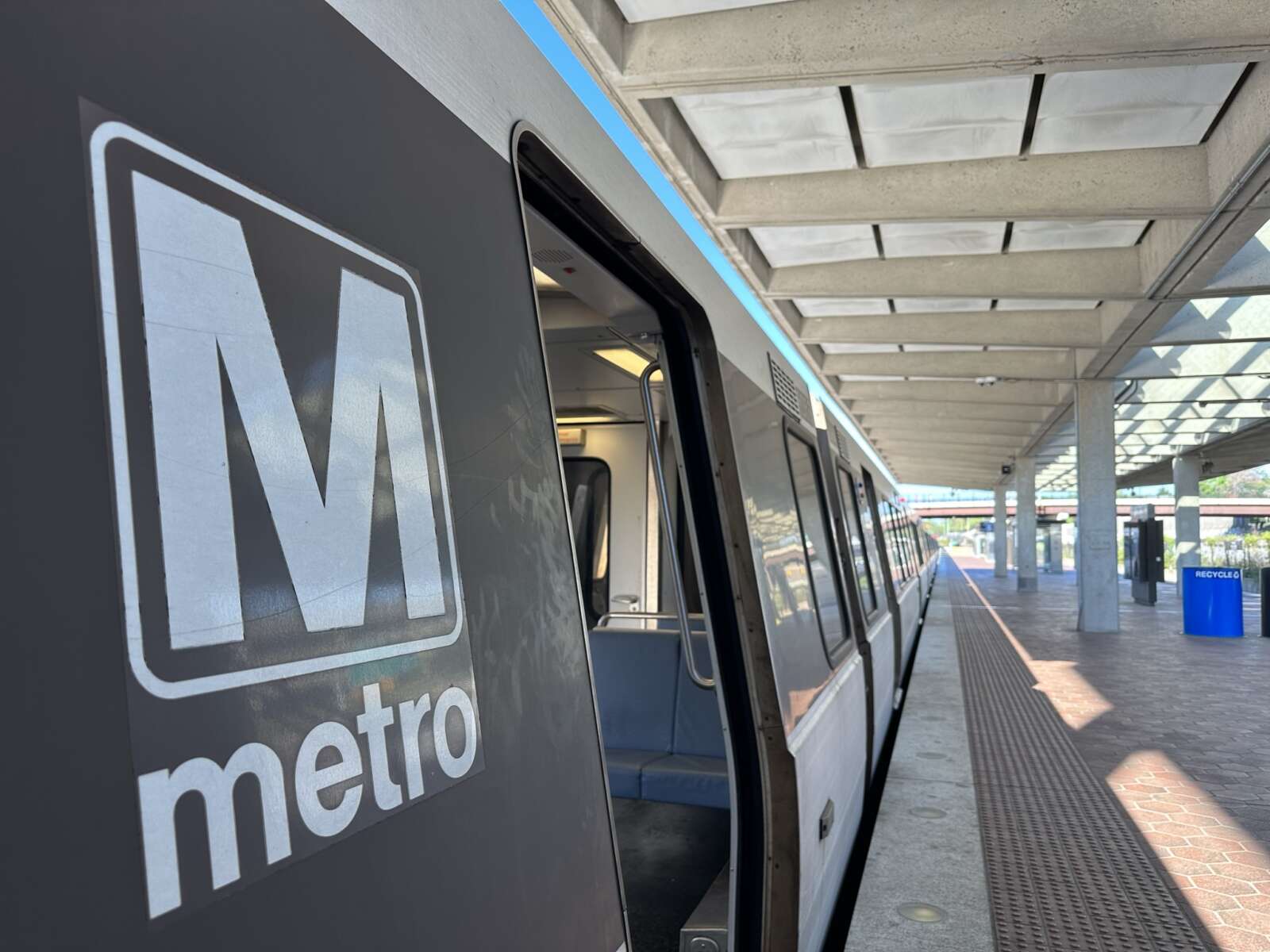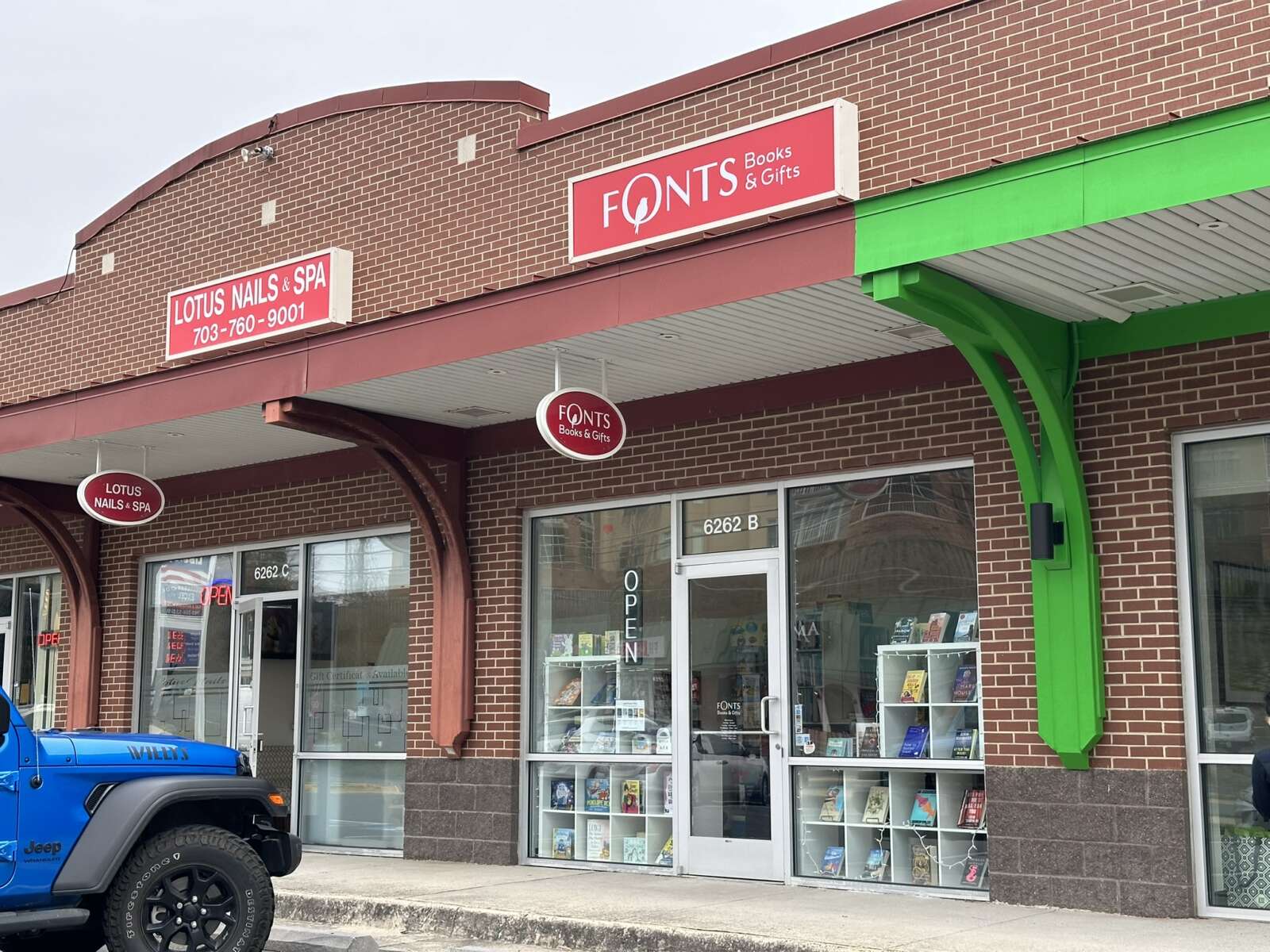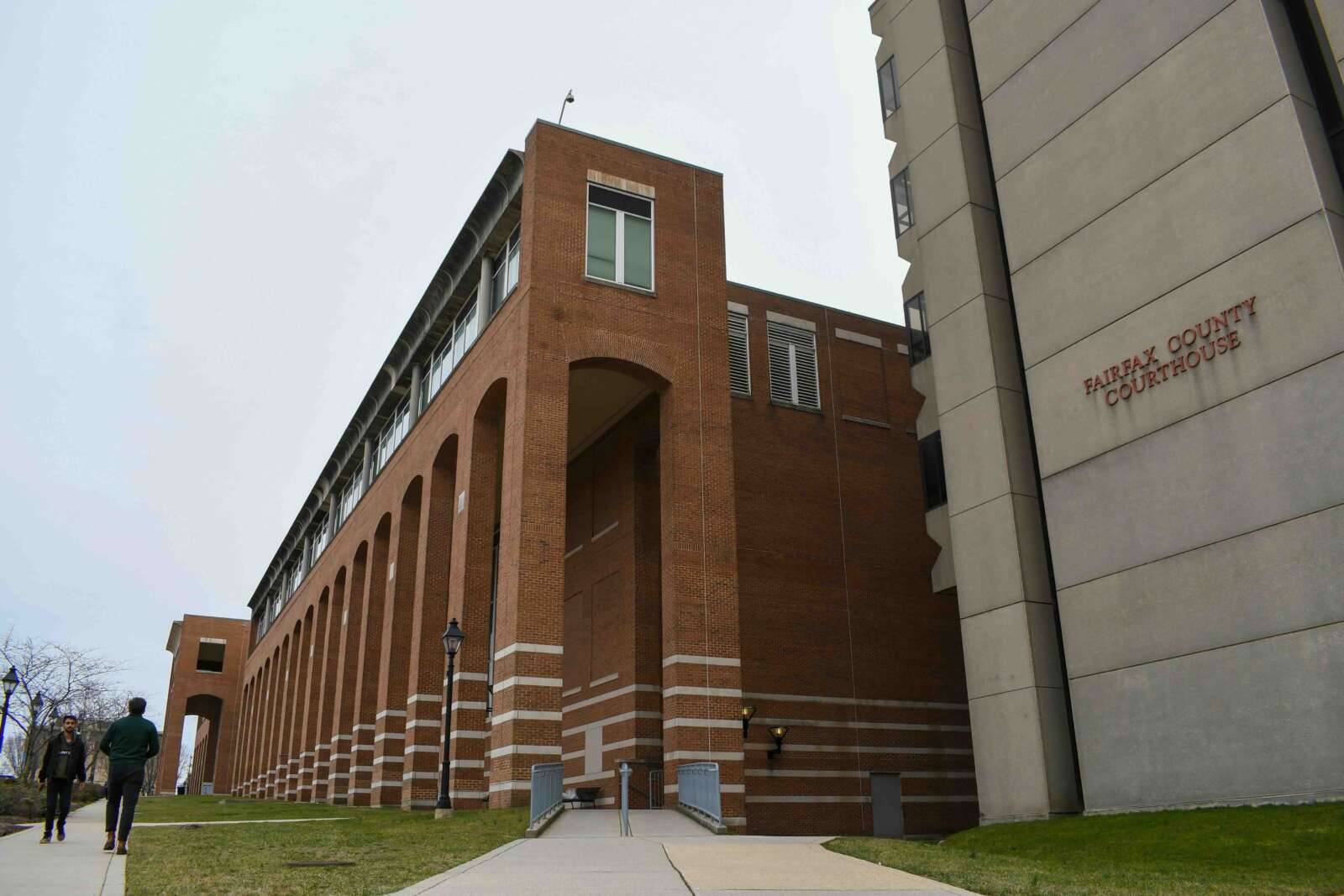
As Metro considers ways to address a looming $750 million shortfall and stave off changes to its operations, officials are requesting jurisdictions, including Virginia, review their options to help address the funding deficit that threatens thousands of jobs and various services.
Metro hopes policymakers in the commonwealth will consider adjusting the state law that sets a 3% cap on the growth of Virginia’s annual payment to the Washington Metropolitan Area Transit Authority. Dedicating more funding to Metro and overlooking the demands of other transportation projects, however, concerns some lawmakers and transportation leaders.
The shortfall
[Earlier this month], Metro officials made their case to Virginia leaders at the Commonwealth Transportation Board’s work session and joint House and Senate Transportation meeting in Arlington.
“We are obviously trying to avoid the cuts, but to do that, we need the cap [readjusted] and the certainty around funding,” said Randy Clarke, general manager and CEO of Metro, speaking at the Oct. 17 CTB work session.
As the agency faces a loss of COVID-19 relief funding at the end of the fiscal year, Metro officials said the reasons for the expected shortfall include revenue decreases since the COVID-19 pandemic, contractual commitments such as bargaining agreements and increased inflation costs.
In the meantime, Metro is focused on belt-tightening to avoid potential layoffs of about 5,000 employees, hiring freezes, and service cuts; the agency is also considering fare increases. Clarke said Metro is closely managing its operating expenses to help with carryover to the next fiscal year, and it could have a recurring fund of $50 million every year going forward for the next 10 years as part of an earlier initiative to create a savings plan.
“We’ve significantly reduced the …deficit for this year, but some of these are one-year solutions, but I think everyone again is just trying to figure out a more holistic path forward,” Clarke said.
On Oct. 19, Virginia Secretary of Transportation Shep Miller told the Mercury at the Governor’s Transportation Conference that region and state transportation leaders are considering Metro’s proposed shortfall. However, after speaking with committee members, it’s unclear which body will take up Metro’s request.
At the Oct. 17 work session, Miller said Metro is an important system and has been on “good footing” compared to previous years marked by management issues. Still, the agreement between the jurisdictions, and the millions of dollars each is being asked to contribute to Metro, is a difficult matter.
“Whether the number is 750 or whether it’s 500, or whether it’s 350, on an annual basis, [it] is going to be a choker for the folks that got to come up with the money,” Miller said.
3% cap
Clarke said Metro needs some clarity on what funding adjustments Virginia can make to address the expected deficit, ideally by December. To help address the $750 million shortfall, Metro officials are proposing Maryland and Virginia adjust their 3% cap on the growth of their annual payments to WMATA, which would require a one-time adjustment for fiscal year 2025.
However, in Virginia, any changes to the state law could be a lengthy process.
“Virginia, Maryland and the District all have different calendars and the timing and some of the things that the general manager and his team will have to enact or put in place [makes for] a very complicated situation that we’ll have to work through,” said Paul Smedberg, chair of the Metro Board of Directors.
In 2018, Virginia, Maryland, Washington D.C., and WMATA partnered to address the agency’s financial issues operating transit services in the D.C. metropolitan area, primarily in Northern Virginia. The three jurisdictions established a dedicated funding source for the transit agency to help address any maintenance issues. The Virginia General Assembly then created the WMATA Capital Fund to uphold its portion of the agreement.
The state appropriates the funds to the Northern Virginia Transportation Commission, transferring them to WMATA for capital projects and operating assistance. In 2022, Virginia contributed $200.8 million to WMATA, according to the Department of Rail and Public Transportation.
Under the state law, if WMATA’s budget increases the commonwealth’s payments by more than 3% in any given year, state code directs the Commonwealth Transportation Board to withhold 35% of funding for capital and operating assistance.
However, at the beginning of the pandemic in 2020, Metro provided jurisdictions including Virginia a credit of $196 million. Metro provided the credit because jurisdictions’ funding was unclear until they received the second round of federal pandemic relief money.
Clarke said if the credit were compounded, it would be worth $690 million to date.
“You could actually argue that without the credit, we would actually have a more or less balanced budget this year,” Clarke said. “That doesn’t mean we wouldn’t have a next year of significant funding issue, but that’s how large that credit is, especially when you add in the compounding.”
Virginia legislators’ funding concerns
Lawmakers at the Oct. 19 Joint House and Senate Transportation Committee meeting expressed concern about the potential impacts of the shortfall, while others didn’t want their colleagues to lose sight of other priorities such as road and multimodal projects in the commonwealth.
Del. Terry Austin, R-Botetourt, said lawmakers must fund and maintain the rest of Virginia’s transportation network.
“We have to acknowledge the needs of Metro and the needs of the transportation surface movers in this region of the state, nor can we allow [it] to take away from all the needs of all the rest of the state,” Austin said. “We have a problem with revenue. Our transportation needs far exceed our ability and this is a huge need.”
Del. Vivian Watts, D-Fairfax, added that when the agreement was created between the jurisdictions it was because of trust issues with the transit agency and its management of operations. However, she applauded Clark’s work since joining the agency last July.
Still, Watts said, “We cannot, as we move forward, take all of the importance of Metro and say that it overrides this region’s total transportation needs.”
Sens. Barbara Favola, D-Arlington, and Jennifer Boysko, D-Fairfax, said Metro has had a major impact on the environment and business communities in their districts. According to Metro, 70% of jobs and 60% of the region’s population are within a half-mile of a transit stop.
Sen. Dave Marsden, D-Fairfax, said policymakers must work as “diligently” as possible to restore things for Metro next fiscal year.
“When you start talking about the 3% cap not being adjusted, when you start talking about the possible layoffs, possible reductions in budget that require reduced services because you do have to be a balanced budget, you’re talking about the beginning of the death spiral for an agency that is critical to this commonwealth’s economy, [and] critical to Northern Virginia because COVID has changed everything,” Marsden said.
On Oct. 17, Miller told Metro officials he was also concerned with the agency’s overdue safety needs, totaling approximately $4.5 billion.
Clarke said Metro’s structures, tracks and power cabling are in good condition, but the agency is concerned that using its capital for operations will delay the roll out of the 8000 series rail cars and keep the 3000 series railcars in service longer. Clarke said the 3000 series rail cars have already reached the maximum life of a railcar, around 35-40 years.
Clarke said he doesn’t believe the agency will ever have zero dollars worth of overdue safety needs because Metro is constantly working on its safety plan.
Still, he said, “We got to keep that number low because that number means a state of good repair, which means reliability, which means, ultimately, a safe system.”
This article was reported and written by the Virginia Mercury, and has been reprinted with permission.
Recent Stories

The Gillion Academy’s Home School Basketball Program begins Fall 2024 for 7th – 12th Grade student-athletes to complete their online academic studies in a supervised and focused setting while receiving elite training from our professional basketball trainers at The Gillion Basketball Academy, a state of the art training facility in Springfield, Va. We have developed over 200 college athletes and placed over 50 players in the NBA and pro leagues overseas and provide the same level of training for our student-athletes.
We will have a virtual Open House Zoom on May 6th at 7:30PM so please go to our website to learn more about us and to fill out an interest form and register for the event and learn about the top training facility in the DMV area.
Any questions please email our Director at philip.budwick@gil-lionbasketballacademy.com.

For many remote workers, a messy home is distracting.
You’re getting pulled into meetings, and your unread emails keep ticking up. But you can’t focus because pet hair tumbleweeds keep floating across the floor, your desk has a fine layer of dust and you keep your video off in meetings so no one sees the chaos behind you.
It’s no secret a dirty home is distracting and even adds stress to your life. And who has the energy to clean after work? That’s why it’s smart to enlist the help of professionals, like Well-Paid Maids.
Pedal with Petals Family Bike Ride
Join us on Saturday, May 11th and ride into spring during our Pedal with Petals Family Bike Ride. Back for its second year, Pedal with Petals is going to be bigger than ever. This year’s event will include both an
Encore Creativity for Older Adults at Capital One Hall
Encore Creativity for Older Adults is pleased to raise the curtain and welcome community members to its spring concert at Capital One Hall in Tysons, VA on May 4, 2024. The concert, which starts at 3 PM, will bring hundreds







